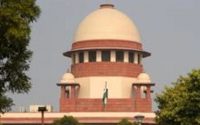Supreme Court defers hearing of Essar Steel insolvency case till 19 August
Source: livemint.com
New Delhi: The Supreme Court on Wednesday deferred till 19 August hearing in the Essar Steel insolvency case, saying said the matter should be decided in light of fresh challenges following recent amendments to the Insolvency and Bankruptcy Code.
A division bench, headed by Justice Rohinton Fali Nariman and comprising Justice Surya Kant, heard the submissions by operational creditors and agreed to adjourn the case till 19 August. The operational creditors said they would file petitions within a week challenging the validity of the amendments to the IBC.
The apex court bench also sought the presence of Attorney General before it in relation to the matter and sought his assistance regarding the amendments and their effect on the case.
The Supreme Court had on 22 July put on hold the sale of Essar Steel India Ltd to ArcelorMittal after lenders to the bankrupt Indian steel maker challenged an appeals court ruling that said operational creditors have to be treated on a par with financial creditors.
The appellate tribunal had ruled that lenders and operational creditors will get 60.7% of their outstanding claims and proportionately share the money that ArcelorMittal has offered to pay for the Indian firm, which in rupee terms entails a payment of ₹30,030 crore to financial creditors and ₹11,969 crore to operational creditors.
The Supreme Court agreed to ‘expeditiously’ hear the plea filed by banks against the National Company Law Appellate Tribunal (NCLAT) order of 4 July.
Operational creditors with admitted claim amounts of less than₹1 crore would get 100%, while for those with claims of more than ₹1 crore, the payment would be 60.26%, according to the NCLAT ruling.
The Insolvency and Bankruptcy Code (Amendment) Bill, 2019 was passed by Rajya Sabha on 29 July and Lok Sabha on 1 August. It shall replace the 6 June ordinance. Among many amendments, it gives committee of creditors of a loan defaulting company explicit authority over the distribution of proceeds in the resolution process and fixes a firm timeline of 330 days for resolving cases referred to the IBC.



